The HBCU Clean Energy Initiative celebrates the passing of the historic Inflation Reduction Act with over 360B designated for clean energy investments. While much of the money is allocated towards broad change at an industry level, like building more solar and wind power, there are three ways the bill incentivizes consumers to make greener choices.
- The Inflation Reduction Act calls for reviving a credit that ended last year, making it retroactive for all of 2022 and extending it for more than a decade. Homeowners who front the cost of energy efficiency improvements, from new doors and windows to more efficient appliances, would be able to claim up to $1,200 a year or 30% of the total cost at tax time.
- For homeowners looking to capture renewable energy themselves, the Act would bulk up existing tax credits for residential solar and as well home energy storage systems, basically giant batteries. Homeowners could get up to 30% of the cost of home solar back at tax time, retroactive to the beginning of 2022 and running through 2032, with the amount tapering until the end of 2034. The same incentive would apply to storage.
- Consumers can receive up to $7,500 for a new EV and $4,000 for a used one. However, eligible buyers can’t make more than $300,000/year on a jointly filed tax return when claiming the credit for a new EV, and the money cannot apply to a car that sells for more than $55,000 or truck/SUV/van priced higher than $80,000, a step that excludes luxury vehicles from the tax credits.
This historic bill also aims to reduce carbon emissions by as much as 40% by 2030. Since the U.S. is the largest producer of Carbon Dioxide emissions in the world, this will significantly impact climate change. Congratulations to the many Congresswomen and men who worked tirelessly to pass this legislation!
To read more about the HBCU Clean Energy Initiative, click here.

